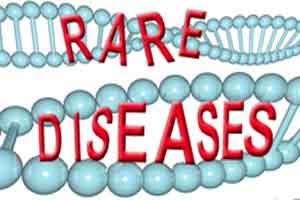- Home
- Medical news & Guidelines
- Anesthesiology
- Cardiology and CTVS
- Critical Care
- Dentistry
- Dermatology
- Diabetes and Endocrinology
- ENT
- Gastroenterology
- Medicine
- Nephrology
- Neurology
- Obstretics-Gynaecology
- Oncology
- Ophthalmology
- Orthopaedics
- Pediatrics-Neonatology
- Psychiatry
- Pulmonology
- Radiology
- Surgery
- Urology
- Laboratory Medicine
- Diet
- Nursing
- Paramedical
- Physiotherapy
- Health news
- Fact Check
- Bone Health Fact Check
- Brain Health Fact Check
- Cancer Related Fact Check
- Child Care Fact Check
- Dental and oral health fact check
- Diabetes and metabolic health fact check
- Diet and Nutrition Fact Check
- Eye and ENT Care Fact Check
- Fitness fact check
- Gut health fact check
- Heart health fact check
- Kidney health fact check
- Medical education fact check
- Men's health fact check
- Respiratory fact check
- Skin and hair care fact check
- Vaccine and Immunization fact check
- Women's health fact check
- AYUSH
- State News
- Andaman and Nicobar Islands
- Andhra Pradesh
- Arunachal Pradesh
- Assam
- Bihar
- Chandigarh
- Chattisgarh
- Dadra and Nagar Haveli
- Daman and Diu
- Delhi
- Goa
- Gujarat
- Haryana
- Himachal Pradesh
- Jammu & Kashmir
- Jharkhand
- Karnataka
- Kerala
- Ladakh
- Lakshadweep
- Madhya Pradesh
- Maharashtra
- Manipur
- Meghalaya
- Mizoram
- Nagaland
- Odisha
- Puducherry
- Punjab
- Rajasthan
- Sikkim
- Tamil Nadu
- Telangana
- Tripura
- Uttar Pradesh
- Uttrakhand
- West Bengal
- Medical Education
- Industry
Patient groups concerned over 'delay' in rare diseases treatment policy implementation

New Delhi: Patient's organisations on Tuesday sought immediate implementation of the National Policy for Treatment of Rare Diseases, stating the affected were losing lives due to "delayed response" from the government.
The policy was approved by the Union Health Ministry in May last year, and the Rs 100-crore corpus that was allocated for it has lapsed, claimed an association of patients suffering from Lysosomal Storage Disorders (LSDs).
"Patients are losing lives as the government delays response. We had written a letter to a joint secretary in the health ministry, seeking a response on the initiation of treatment based on applications submitted by patients under the National Policy for Treatment of Rare Diseases. But there was no response," LSDSS president Manjit Singh alleged.
"We have recently also written a letter to the health secretary explaining that the patients are awaiting treatment and requested allocation of funds for the same. Unfortunately, we have not even heard back on the second letter, which is disheartening," he claimed.
Over 160 patients have submitted in the health ministry's Rare Diseases Cell their applications for treatment support, as directed in the policy. However till date, not a single child has been provided the treatment, Singh said.
"Around 20 children have passed away in the intervening period, 10 alone in Tamil Nadu," he alleged.
Highlighting the gaps in the policy, experts said the most difficult task is to bridge the "tedious process of patient application and distribution of funds" for treatment.
The policy talks about setting up of a Central Technical Committee (CTC), individual State Technical Committees (STCs) and Rare Disease Cell for treatment of patients.
While these committees have been set up, experts claim that the process for availing treatment is too complicated and tedious.
"This was ideally supposed to ease processing of patient applications and distribution of funds. Even when some states have identified patients for treatment and formed the STCs, no applications have been processed by CTCs.
"There is no reason that justifies the neglect and laxity on the part of the government. Filing the application is itself a tiring procedure for a patient, who is already struggling with a rare disease," Singh claimed.
Prasanna Shirol, the co-founder and executive director of Organisation for Rare Disease India (ORDI), said some states have shared patient applications with the Centre and requested for funds.
But the central government has taken no action on it. The Centre was supposed to come up with guidelines for setting up a structure to process the applications and providing treatment, said Shirol, whose organisation had also written to the ministry for the implementation of the policy.
"This is like adding insult to injury," he said.
The organisations also expressed disappointment over the "non-utilisation" of Rs 100 crore corpus allocated under the policy.
"The fund was supposed to be used for the benefit of the patients, but none of it has been utilised. This has been the biggest gap as the fund has now lapsed as the last financial year ended," Shirol said.
Medical Dialogues Bureau consists of a team of passionate medical/scientific writers, led by doctors and healthcare researchers. Our team efforts to bring you updated and timely news about the important happenings of the medical and healthcare sector. Our editorial team can be reached at editorial@medicaldialogues.in.


